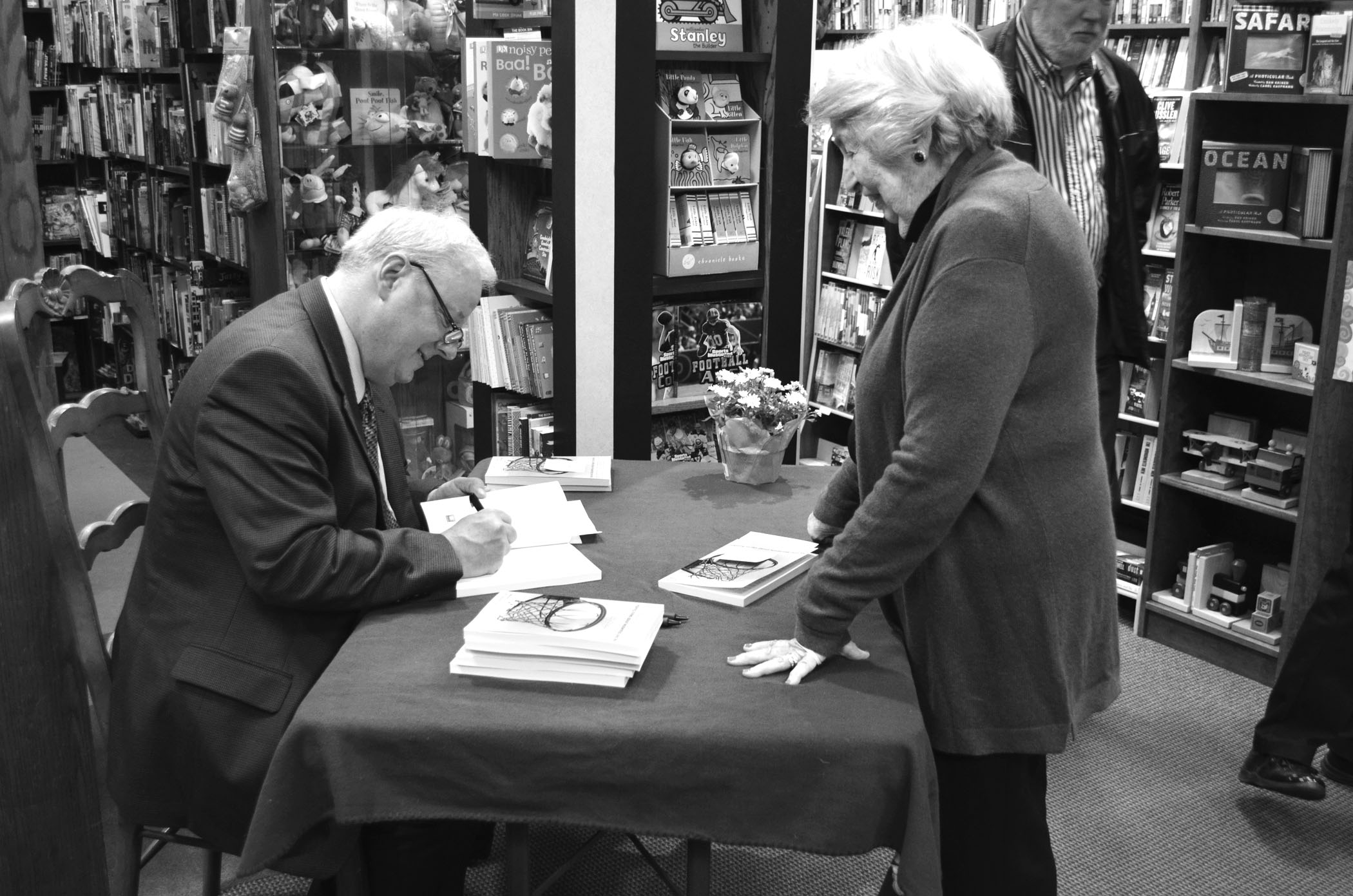
When principal Paul Pryma first became an administrator at Highland Park, he left his passion for coaching basketball. After eleven years in administration, he decided to return to the court.
“I was watching a lot of programs struggle because the coaches running those programs struggled as leaders,” said Pryma. “I felt that I could come back into coaching with a better understanding of leadership that would transfer into better teaching for kids.”
But Pryma said returning to coaching was not enough. He wanted to address the problem he saw in the way coaches approached their student-athletes by portraying the legacy of three of the best coaches he knew. Gene Pingatore, St. Joseph boys basketball Coach, Rick Malnati, Fenwick boys basketball Coach and Steve Pappas, former Deerfield boys basketball Coach, are all featured in Pryma’s book, “Coaches of Chicago.”
“I’ve always been struck by the enormous influence that a basketball coach or a football coach has on the overall school,” said Pryma. “I think there’s tremendous leadership visibility in those positions, and I wanted to write a book about the importance of that position.”
According to Pryma, “Coaches of Chicago” is a compilation of various stories and experiences through which he uses the stories of Pingatore, Malnati and Pappas to show readers how to effectively display leadership.
Malnati said that while he was unsure why Pryma decided to include him in the book, he felt special just knowing that Pryma had selected him from a large pool of other great coaches.
Pryma and Malnati were head coaches at Evanston and New Trier, respectively, back in 2002. Malnati said the two programs had a bitter rivalry at the time, but he remembers Pryma’s warm personality before a key game at Northwestern’s Welsh-Ryan Arena.
“Before the game, the place was packed, and I went over to [Pryma] and said, ‘Okay, we’ve got to thank these communities for coming out,’” said Malnati. “This is unbelievable. I just remember both of us grabbing a microphone, going to half court and saying ‘thank you’ to the crowd and how great it is to compete. The rivalry was pretty heated, but the fact that [Pryma] was there, it just made it more of a friendly rivalry rather than this hatred.”
Pryma remembers it was at that game he first saw Malnati’s passion for competition that led him to include Malnati in the book.
“We were in the middle of this crazy game,” said Pryma. “It’s a packed house, everyone’s screaming, it’s a tie game, and I’m coaching and Rick is coaching when [five] of my players head over to the scorer’s table [to be substituted] into the game. Rick turns to me and screams, ‘This isn’t a…hockey game! You can’t do that!’ Then he smiled at me, I smiled at him and the [referee] smiled and that’s when I knew I really enjoyed his company.”
Similar to Malnati, Pingatore wondered why Pryma decided to include him in “Coaches of Chicago” upon seeing his name in print.
“I [asked], ‘Why me?’” said Pingatore with a chuckle. “I mean, honestly, I guess Pryma had his reasons for including me, but I did say, ‘Why me? Why [are] you picking on me [for the book] Paul?’”
Besides Pingatore being one of the most successful coaches in the state of Illinois, Pryma said his work ethic and positive approach to life were both attributes he wanted to display in the book.
“When I was at Saint Ignatius, we went to our first sectional,” said Pryma. “I went to a meeting with [Pingatore], and he was so thrilled to be there. This was like his twentieth sectional, and it was my first, but he was as excited as I was.”
Challenges arose when Pryma tried to include Pappas in his book.
Pappas passed away from non-Hodgkin’s lymphoma in 2006, and Pryma said it was difficult to create Pappas’s portraiture through the feelings and thoughts of people that surrounded the former Deerfield basketball coach.
“Steve was probably the most complete educator I have ever had the pleasure of meeting…Steve taught with love,” said Pryma. “He loved his students, he loved basketball and he loved [teaching] English.”
While Pryma said it was natural for him to write a book on leadership through coaching, he was not satisfied with his work when he saw the book in print.
“So much of the writing and the effort I put into this, I felt, was unacceptable,” said Pryma. “It was not [at] a level of expertise that I wanted it to be.”
One of the biggest challenges Pryma said he faced was researching the broad topic of leadership for the book. He said it was frustrating to try and piece together relevant research to create a coherent thesis.
“For every page of the work of the research that is presented in the book, I probably read three or four hundred pages just to get that [information],” Pryma said.
Regardless of the fact that he was not entirely pleased with the outcome of the book, Pryma recommends that everyone write a book, adding that “it was a tremendous exercise full of organization, frustration and just being kind to yourself.”
Pryma said he hopes people will find value in his book, and he wants to continue writing after he retires.
“Writing is, in my mind, nothing more than problem solving, and I love solving problems,” said Pryma. “I always knew I would write something, I just didn’t know how and when.”

